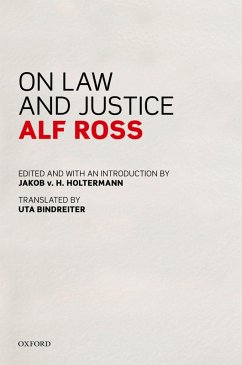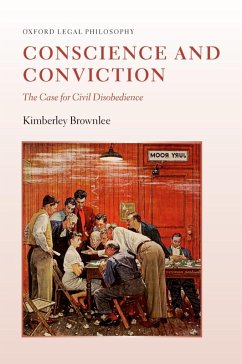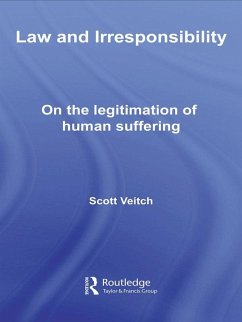
Causation and Responsibility (eBook, ePUB)
An Essay in Law, Morals, and Metaphysics
Versandkostenfrei!
Sofort per Download lieferbar
38,95 €
inkl. MwSt.
Weitere Ausgaben:

PAYBACK Punkte
19 °P sammeln!
The concept of causation is fundamental to ascribing moral and legal responsibility for events. Yet the relationship between causation and responsibility remains unclear. What precisely is the connection between the concept of causation used in attributing responsibility and the accounts of causal relations offered in the philosophy of science and metaphysics? How much of what we call causal responsibility is in truth defined by non-causal factors? This book argues that much of the legal doctrine on these questions is confused and incoherent, and offers the first comprehensive attempt since Ha...
The concept of causation is fundamental to ascribing moral and legal responsibility for events. Yet the relationship between causation and responsibility remains unclear. What precisely is the connection between the concept of causation used in attributing responsibility and the accounts of causal relations offered in the philosophy of science and metaphysics? How much of what we call causal responsibility is in truth defined by non-causal factors? This book argues that much of the legal doctrine on these questions is confused and incoherent, and offers the first comprehensive attempt since Hart and Honoré to clarify the philosophical background to the legal and moral debates. The book first sets out the place of causation in criminal and tort law and outlines the metaphysics presupposed by the legal doctrine. It then analyses the best theoretical accounts of causation in the philosophy of science and metaphysics, and using these accounts criticises many of the core legal concepts surrounding causation - such as intervening causation, forseeability of harm and complicity. It considers and rejects the radical proposals to eliminate the notion of causation from law by using risk analysis to attribute responsibility. The result of the analysis is a powerful argument for revising our understanding of the role played by causation in the attribution of legal and moral responsibility.
Dieser Download kann aus rechtlichen Gründen nur mit Rechnungsadresse in A, B, BG, CY, CZ, D, DK, EW, E, FIN, F, GR, HR, H, IRL, I, LT, L, LR, M, NL, PL, P, R, S, SLO, SK ausgeliefert werden.













